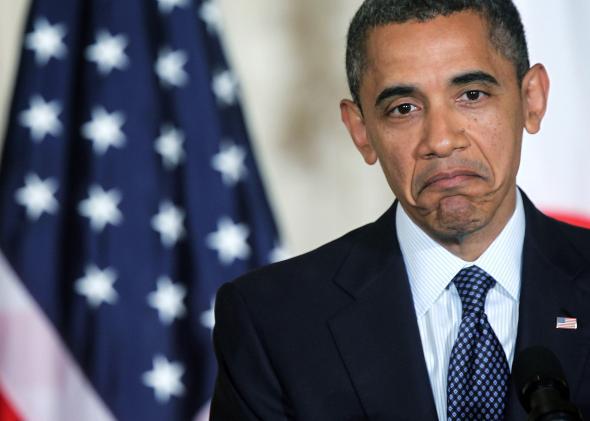Well, it’s a nice enough idea. President Obama is unveiling his 2016 budget proposal today, and the centerpiece is a plan that would tax overseas corporate profits to help fund $478 billion in infrastructure spending here in the U.S. Our worn-out roads and bridges could use some TLC, and the White House would like General Electric and Apple to pay for it.
Since last year, the White House has treated its budget as a wish list meant to highlight the contrasts between the president’s vision for governing and the Republican Party’s. This is a perfectly rational course of action, as Obama’s past attempts at political compromise went precisely nowhere. But because hope springs eternal in Washington, there’s some talk that the president’s plan might be a “starting bid” in a negotiation process that could lead to a big accord on corporate tax reform. The president is proposing a one-time, 14 percent levy on the roughly $2 trillion in profits corporations have stashed overseas. (That would haul in about $238 billion. The remainder of the public works program, according to the Associated Press, would be paid for through the Highway Trust Fund). Going forward, Obama would lower the top corporate rate on domestic earnings from 35 percent to 28 percent and tax new overseas profits at 19 percent, minus whatever companies pay in foreign taxes.
Why does anybody think this might create room for compromise? Well, basically everybody agrees that, in principle, corporate tax reform is necessary, and that lowering the top rate while cutting out loopholes would be the ideal path forward. Meanwhile, some Republicans say they’re also eager to strike a deal to fund infrastructure spending. Plus, the one-tax fee on foreign profits was sort of, kind of a GOP idea at one time. In his own tax reform plan last year, former House Ways and Means Committee Chairman Dave Camp suggested a one-time 8.75 percent toll on overseas profits.
Then again, as Politico puts it, “Camp’s plan fell flat, and even his fellow Republicans didn’t embrace it.” Meanwhile, Paul Ryan, the House Ways and Means chair, isn’t sending particularly enthusiastic signals about the Obama proposal. Here’s what his camp told Reuters:
On the foreign profits proposal specifically, Ryan aide Brendan Buck said in an emailed reply to questions that tax reform should be about simplifying the code and lowering rates.
“If that’s the approach the administration is willing to take, there may be room to find common ground,” he said.
“There won’t be, however, if the president instead tries to sock American businesses with big tax hikes just to increase spending and add even more complexity to the code.”
So, that reaction was pretty chilly. Anyway, maybe this budget is indeed the start of a tough negotiation that ends with substantive reform and some extra cash for fixing potholes. Or maybe it’ll disappear quickly and unceremoniously. Given recent history, I’d bet on the latter.
